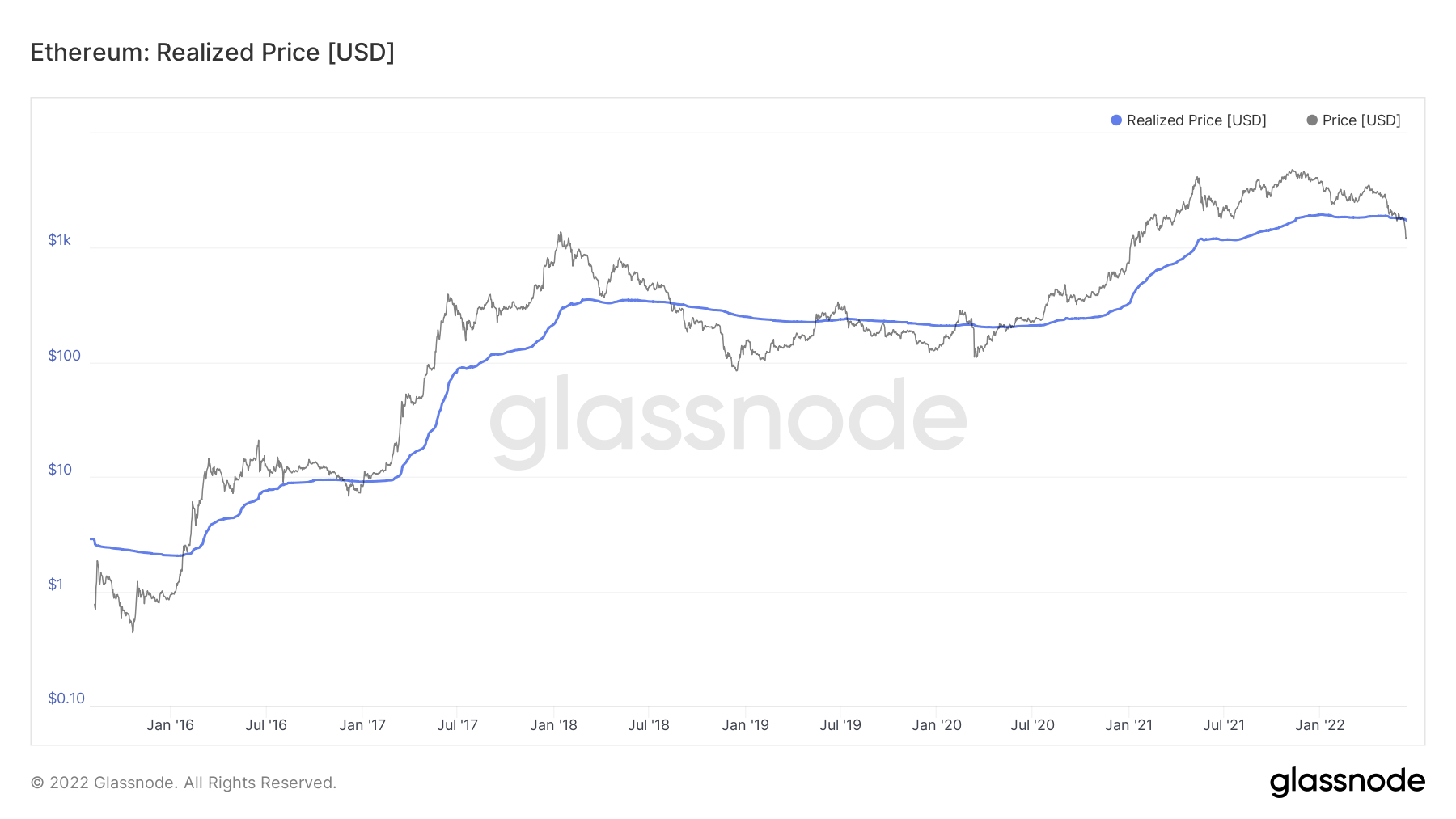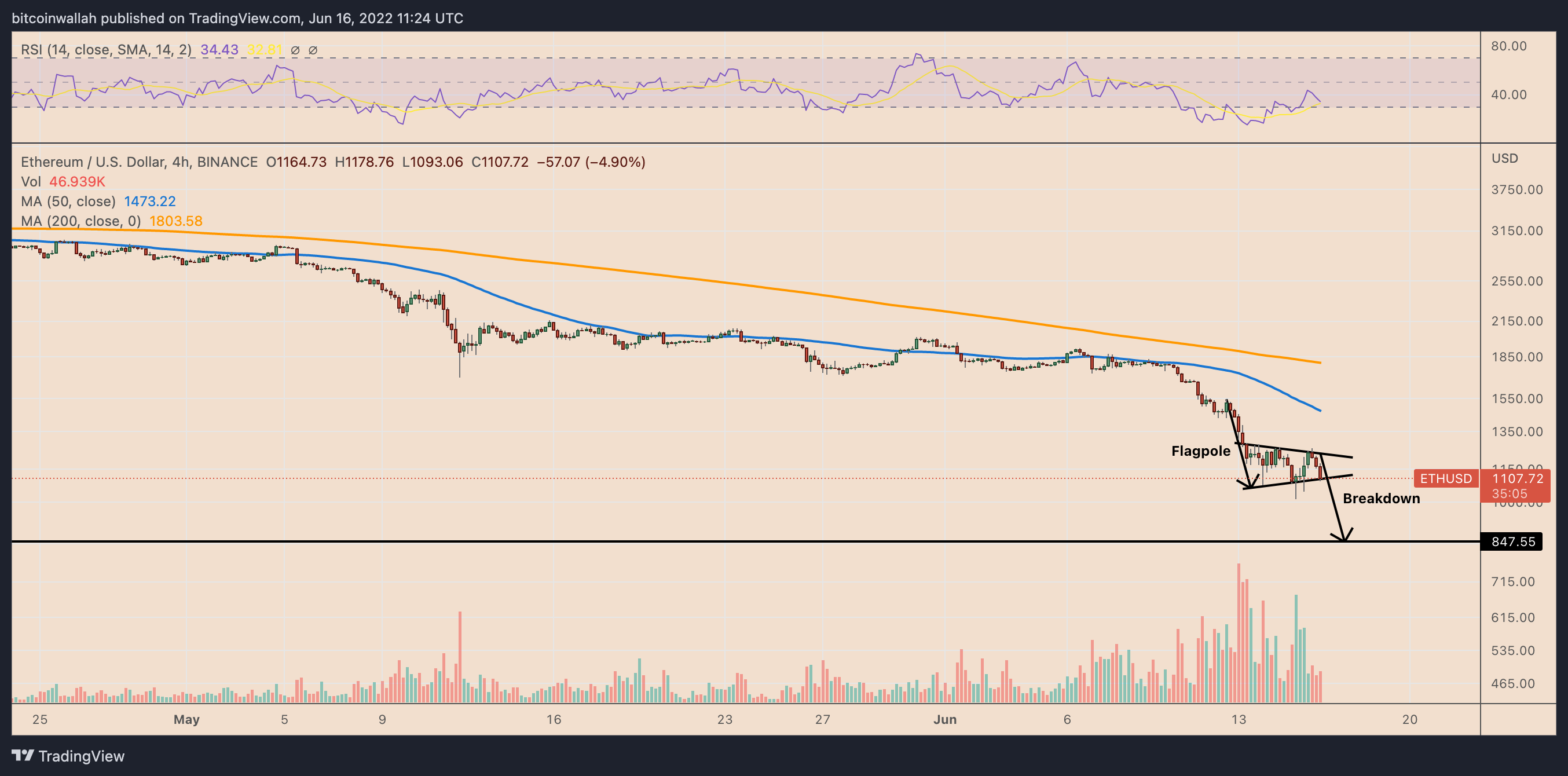
Ethereum’s native token Ether (ETH) slumped on June 16, suggesting that its relief rally coinciding with the Federal Reserve announcing it will hike the benchmark rate by 0.75%, is at risk.
Ether bulls trapped?
Ether’s price slipped by 9.2% to around $1,120 per token a day after it rebounded by 23% after dropping to almost $1,000, its worst level since January 2021.
The ETH/USD pair’s upside move, followed by a sharp correction, appeared in tandem with U.S. stocks, confirming that it traded like a risk-asset.
The decline means that Ether has shed 77% of its value since November 2021 and is now trading below its “realized price” of $1,740, data from Glassnode shows.

In addition, a higher interest rate environment adds more selling pressure, with investors leaving high-risk trades and seeking safety in traditional hedging assets, such as cash.
Investors’ faith in cryptocurrencies has also eroded following the collapse of Terra, a $40 billion algorithmic stablecoin project, and lending platform Celsius Network’s decision to halt withdrawals.
Atop that, Three Arrow Capital, a crypto hedge fund that oversaw nearly $10 billion in May 2022, reportedly faces insolvency risks. Fears about systemic risks have further limited the crypto market’s recovery bias, hurting Ether.
ALERT: 3AC $250 Million $ETH Position Will Be Liquidated at ≈1000
— Market Meditations (@MrktMeditations) June 15, 2022
From a technical perspective, Ether’s recent gains look like a bear market rally, which could be due to investors covering their short trades.
In detail, investors close their short positions by buying the underlying asset back on the market—typically at a price lesser than the one at the time of borrowing—and returning them to the lender. That prompts the asset to rally between large downside moves, but it does not signify a bullish reversal.
Related: Bitcoin is the ‘Amazon of crypto’ and everything else are bets, says Blocktower founder
These minor rallies could be a bull trap for investors that mistakenly see the rebound as a sign of bottoming out.
On the other hand, experienced bears utilize the pump to open new short positions at the local price top, knowing that nothing has fundamentally changed about the market.
ETH “bear pennant” hints at more losses ahead
Ether’s “bear pennant” on shorter-timeframe charts also supports a bull trap scenario.
Bear pennants are bearish continuation patterns that form as the price consolidates inside a triangle-shaped structure after a strong downside move.
As a rule of technical analysis, traders measure a bear pennant’s profit target by subtracting the breakdow point from the height of the previous decline (called “flagpole”), as shown below.

Thi puts the next bear target for ETH price at $850, down almost 25% from today’s price.
The views and opinions expressed here are solely those of the author and do not necessarily reflect the views of Cointelegraph.com. Every investment and trading move involves risk, you should conduct your own research when making a decision.






Be the first to comment